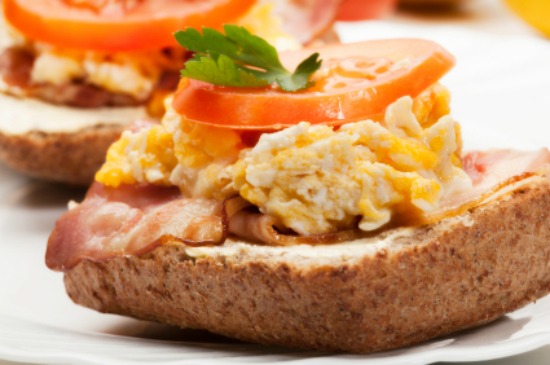Immunonutrition diet: Protein at breakfast? Think about it!
updated the 13 June 2014 à 22:40Nutritionist Jean-Paul Curtay explains the importance of a good protein-rich breakfast as part of a healthy diet – and to keep our immunity system strong.
The simple practice of evenly distributing food over three square meals increases the amount of calories burned. However, energy is the lifeblood of the war against viruses and bacteria. When tired, we are not on form, and we thus produce fewer white blood cells and antibodies, and as a result end up more vulnerable to bacteria and viruses,” says the nutritionist. He campaigns for a breakfast with high amounts of protein from eggs, lean ham, organic yogurt, soy or fatty fish. Proteins have an energizing effect – the energy supplied is quickly available.
Stock up on these foods with a side of fibre-rich cereals (quinoa flakes, buckwheat, etc.), cooked with milk, and some oilseeds. Throw on a fresh fruit salad, sprinkled with, for example, cinnamon, which is highly antioxidant and hypoglycemic. For those with a more adventurous palate, he even suggests organic semi-wholemeal bread rubbed with garlic and drizzled with olive oil.
As delicious as they may be, Western breakfasts (eg: pancakes, croissants, puffs and pastries) are possibly the worst in the world. “Altogether too sweet, it weakens the immune system,” says Jean-Paul Curtay, who also recommends not eating dinner too often. If you don’t have a choice as it is the only meal where the family dines together, have it a little earlier. Why? To avoid overloading the system with nocturnal digestive work, at a time when it should be rebuilding its immunity defences.
Continue reading our report “Immunonutrition diet: What is it and how to follow it?”
Up the zinc intake to up your immunity
Need the energy? Don’t forget magnesium
Stock up on anti-oxidants to block the viruses




